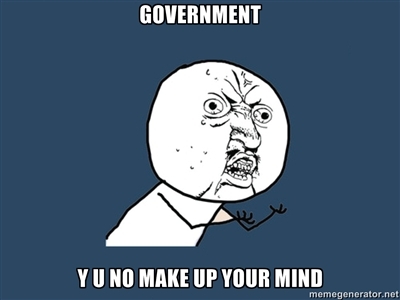If I so much as see anybody come up to me and say “Malaysia is a democratic country”, I will give the person a high five, on the face, with a chair.
Well not just anyone, really, but my Pendidikan Sivik teacher back in high school to be exact. She would always go to the utmost lengths to emphasize her point that Malaysia is a democratic country. Ironically, we weren’t allowed to rock the boat in her class. No questions asked at all, nothing participatory from the students unless instructed to. She did all the talking while we sat there, set in stone and sponging up her demented ravings on civil liberties and democracy in Malaysia. We weren’t allowed to ask her simple questions, such as where exactly we stood as a country in respect to democracy.
An innocent question from a 17-year-old student regarding this landed him in the teachers’ lounge as an example of rebellion and infidelity in the class. There, rumours were spread about such unfortunate students; teachers would mark them off as ‘bad eggs’ in class, and behave condescendingly towards them. The students’ reputation with teachers would be forever marred just because of a simple question about democracy. So tell me, with such an environment, who would have the guts to question the system again?
The repetition and force-feeding of thoroughly useless information is a large part of our national education system. The lack of brain activity or a well-tailored syllabus to allow critical analysis of any situation does wonders (or not) in the ‘vegetation’ of the brain and pacifying one’s active train of thought. The validity of the national mindset that the government wants to instill in our education system turns out to be a vehement attempt in brainwashing the masses. Questions are rebellion. Opinions are deceit spun by the devil. We are taught to never be inquisitive and to learn to trust the system because “they know what is best for us”
So how and when are we finally able to learn to exercise our rights as citizens and be active participants of our (apparently) democratic nation if we cannot even have the option to learn certain subjects in English or Malay because our MOE (Ministry of Education) claims to know what is best for us?
When it comes to the issue of PPSMI, or the Teaching of Maths and Science in English, is acting in our best interests what the government has in mind, or is it the usual case of the conspiracy and hidden agendas?
All this, as usual, at the expense of the poor students now caught in limbo after spending so many years of their school lives learning a subject in English, only to be told that their knowledge would be thrown out the window in order to start anew. Thankfully, I am now out of the national educational system, because otherwise I would want to high-five various parties with a chair on their face.
Democracy is multi-faceted. What democracy means to me might not be what it means to others. The issues I fight for here in the peninsula might be the least of the residents’ concerns in the islands of Terengganu or Sabah. The issue with PPSMI here is not so much on which language – English or Bahasa Melayu – is chosen, but on its implementation and inconsistencies that are very much due to a faulty system. Ibarat pepatah Melayu “Kalau Melentur Buluh, Biarlah Dari Rebungnya” (As the Malay saying goes: If you want to accomplish something, accomplish it from scratch).
Let the current batch of students doing Maths and Science in English finish their entire education in the language to which they have been and are currently assigned. Slowly phase out their current language system year by year until complete elimination is achieved. Give the people and students the consistency they deserve, instead of overthrowing their right to choose and creating unnecessary turbulence for students who are now at the mercy of the ministry.
Language, in my opinion, is less of a concern. However, parents want their children to finish their entire national education system in a language in which they are proficient, rather than throwing it all out to start from scratch when they go to secondary school or start Form 4. I think the viewpoint of the students is being marginalized by schools, parents, ministries and what not. They may be young, but they have voices and opinions. How else do we raise up active participants of democracy within our young ones, if we do not grant them consistency and a proper environment in which they are safe and free to exercise their opinions and articulate their thoughts?
In my honest opinion, it is neither the language nor the syllabus which is to be blamed. It is the entire system that is faulty, rigged by years and years of miscarried policies. Democracy in the education system seems impossible, but let’s take the first step by allowing students to do so in letting them opt for their preferred language medium. Let them grow up to be active participants who make informed decisions for a better, more consistent nation.

